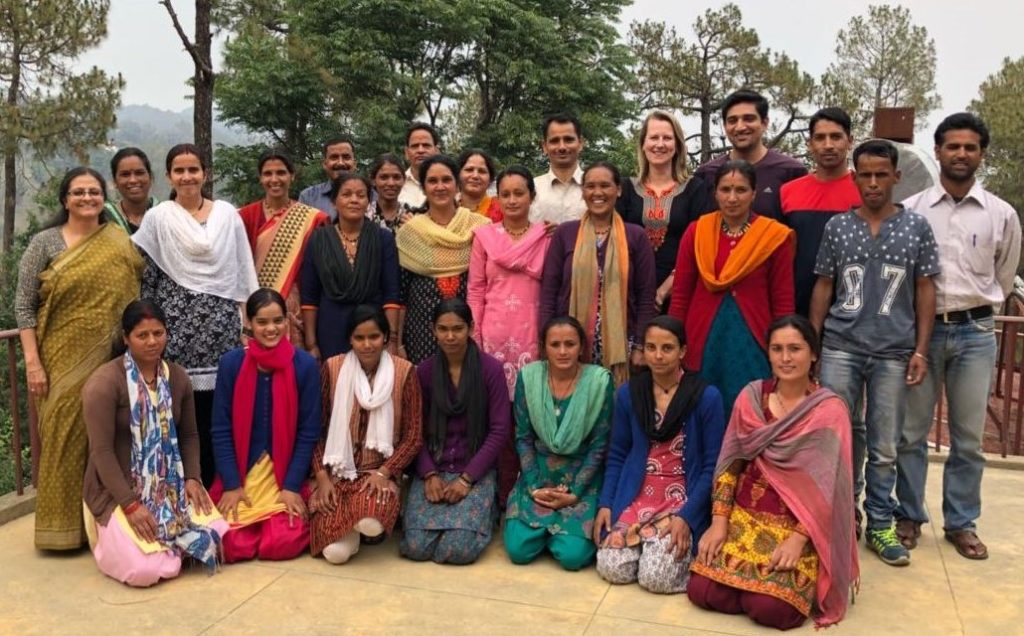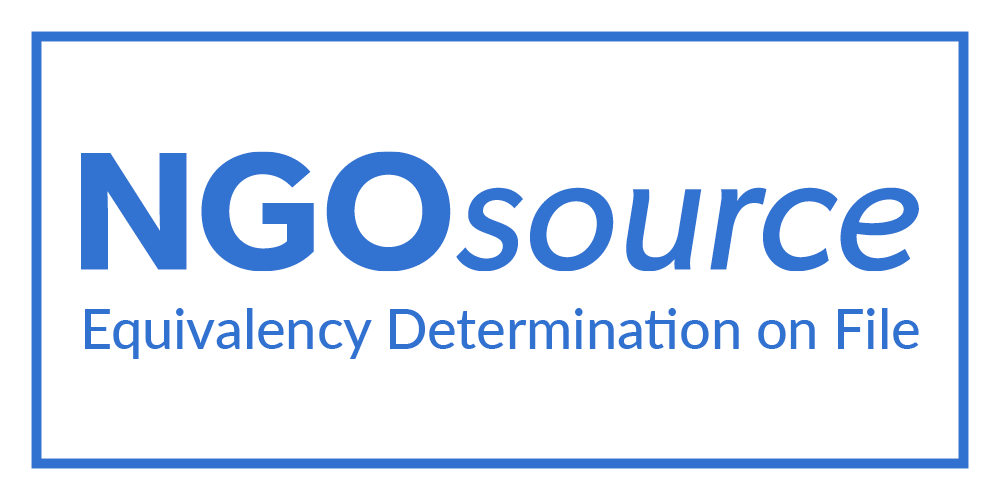Avani means the ‘earth’ in Sanskrit. For its team, the name epitomizes their core values: all that they do is in the service of the earth and her people. The Women on Wings partner is based in Tripuradevi, in the Indian Himalayas. Avani’s journey, as its co-founder Rashmi Bharti (image standing left) says, was very challenging given the harsh weather, the inaccessibility and the wilderness of the mountains. But it had so much beauty and grace that the challenge was minor. A story to inspire you.
Barefoot paves way for Avani
Avani was established as the Kumaon chapter of the Barefoot College Tilonia, Rajasthan, in 1996. It was registered as a separate organization in 1999 and Avani continued the work in the Kumaon region, in the Indian Himalayas. The genesis was the founder and the team’s deep desire to change their lifestyle from urban to simple, and to live and contribute to the beautiful Himalayas that they loved so much. The first step for Avani’s team was to shift to the Himalayas from Delhi and then zero in on the area where they would like to work.
Working in remote villages
“We always felt that we would work in remote areas that were underserved both by the Government and the NGOs. Work was needed in areas that had limited or no access to livelihoods and services like electricity, education, etc. This is how we came to live in a small village, Tripuradevi, where we established our head office. This is a five acre campus that serves as the hub of all that we do. We work in 108 villages with activities that focus on livelihood generation through revival of traditional crafts, appropriate technology and farm-based activities. The core of all activities is women’s empowerment, natural resource management and respect for traditional knowledge,” mentioned Rashmi Bharti, co-founder and Director Programs of Avani.
Increasing income families
Avani’s journey so far has been very enriching on all fronts. As an urban person, Rashmi learnt a lot from rural communities about resilience, cooperation, collaboration and tolerance. The message of grace under pressure is what you see in village life every day. People go about their lives despite overcoming extreme challenges and odds to living a happy fulfilling life. “Our first project in 1997 was to install solar lights in un-electrified villages. This service was paid and we came to realize that many people could not afford 30 rupees per month. So we took the responsibility of increasing the incomes of the people of this region. That is how we began our work with the revival of the traditional craft. From 20 families 1998, we now reach 2,200 families in 64 villages. The families are engaged in the entire supply chain, from farm to fabric,” stated Rashmi.
Artisan-owned cooperative
Rashmi shares: “All steps of production from spinning, weaving, natural dyeing and tailoring are undertaken in the villages. The women engaged have had a stable income for the past 20 years. The empowerment and self-reliance of the socially vulnerable women that has happened through this economic activity has also led to immense social change.” In 2005, as the work became successful, it was separated from Avani and established as an artisan-owned self-reliant cooperative (Earthcraft) which now produces and markets high-quality hand woven textiles in silk, wool and linen that are dyed in natural dyes only.
Sustainable product development
Avani Earthcraft’s initial products were all made using hand spun Tibetan wool, like hand knotted carpets, tweed fabrics, shawls and traditional blankets. Today, the team works with farmers to grow the natural dyes and market them as dye powders, extracts and pigments. It also makes wood stains, water colors, block and screen printing paste with natural dyes. Another important range of products is Tie Dye and coloring kits, and art supplies like 100% beeswax crayons and water colors which are made from natural dyes. Initially, they were selling only in India, but Avani has managed to create a brand presence both in the domestic and international market in the sustainable, slow clothing space. It sells through exhibitions and retail stores in cities in India and exports about 20% of its total production to Japan, USA, Canada, Europe, UK and China. Avani also has two outlets of its own in Sitla, near Mukteshwar, Uttarakhand and its studio office in Shapur Jat, Delhi.
Sustainability in its core
Avani’s model is integrated with forest regeneration, wasteland reclamation, use of clean energy in the production systems, wastewater recycling whilst making exquisite textiles. “Sustainability was a choice we all made 24 years ago when this word was not fashionable. The kind of capacity building and regeneration that has happened is quite wonderful. Our products are handcrafted, use only natural fibers and natural dyes whilst addressing the entire supply chain. Often a business is handling only one part of the supply chain. We work from farm to fabric/finished garment with all value addition happening in the village. Our products are fair, sustainable and have an elegance that lasts beyond fashion. We cater to a market that wants quality and longevity in the products that you can pass on to your daughters. This sets us apart from the rest,” Rashmi pointed out.
Consumer more conscious since COVID-19
Avani has noticed during the COVID-19 pandemic that its work became suddenly very relevant. Something it has been doing for the past 25 years is now important, relevant and replicable. Rashmi: “We are getting enquiries from people for setting up natural dyeing units or to use or sell the dye powders, but there are still many gaps to fill. For example, the natural dye supply chain is an unorganized sector. This means if I buy natural dye from the wholesale market, I do not know what the farmer has received. In all probability just a pittance for growing or harvesting this precious natural dye.”
Industry needs to change
Avani is advocating a fair and transparent supply chain where the farmer is at the center and earns a fair price for his / her product. But the fact is that if a fair price is paid to the farmer, then the dye powder does not come cheap. Many enterprises want natural sustainable dyes at the same price as chemical dyes. Continues Rashmi: “They compare natural dyes to synthetically produced dyes, which is of course impossible. A major shift in paradigm has to happen in the industry if we truly want to make the change. The whole movement has to be farmer and forest-driven and not industry (consumer) driven.”
Avani and Women on Wings
Avani plans to double its business in the next two years so that it can support more families in the villages. It is also looking to become a research and training institution that would enable others to make their businesses sustainable. On the retail front, Avani is planning to set up 2-3 flagship retail stores in 2021-2022. Avani and Women on Wings started partnering in 2013 and today are still collaborating on their joint mission of increasing the livelihoods of families in rural India.
Item inspired by Anu’s post for Apparel Resources
Image: Avani’s team and a Women on Wings team back in 2018, with Rashmi Bharti standing at the left


